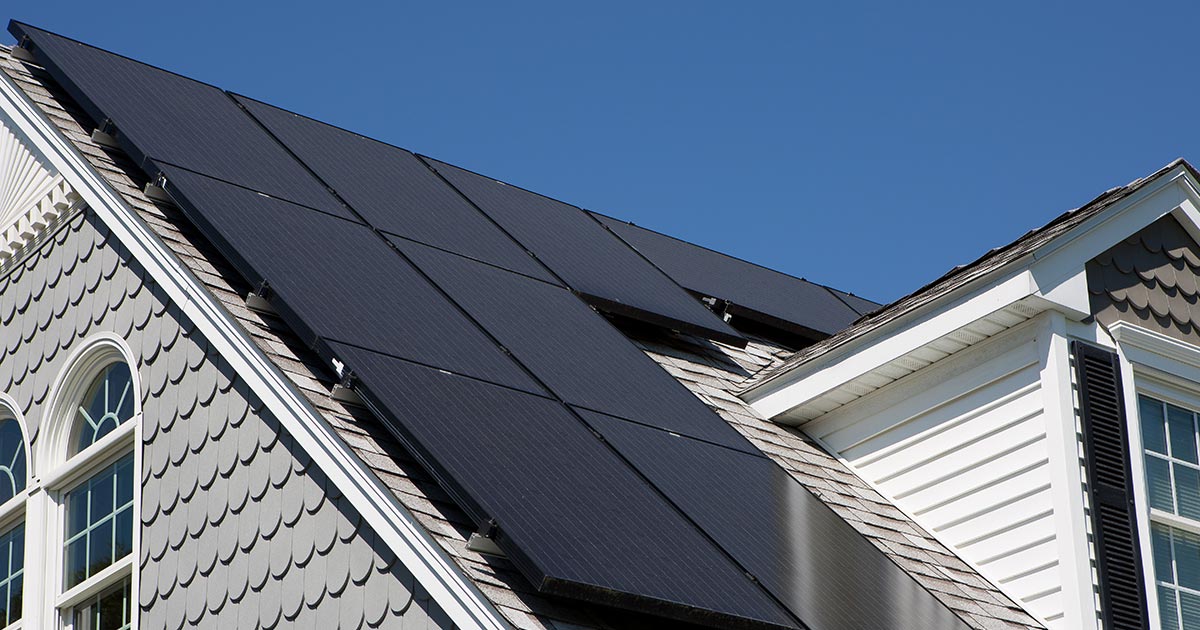Hi JRqwertyui, I'm not sure I know what you are asking. I've placed a handy link below that shows were various panels are manufactured. But the real question, from my perspective, is what size system do you want/need? In terms of kWh per year? Based on where you live and the panels you choose, how many panels will you need to meet this goal? Will they fit on your roof -- with a "standard" efficiency commodity panel? Say Canadian Solar, Trina, or Hanwha Q CELLS, or others. Or, to meet your productivity goals, do you need a higher efficiency, wattage (still 60/96-cell footprint) panel (LG/Panasonic/SunPower)?
Are you willing to pay more / how much are you willing to pay to meet the productivity goal? BUT, realizing that "paying extra" to hit this target may / will likely reduce your ROI -- depending on your state's incentives. If your primary payback is POCO savings, any extra you pay to make your system slightly larger or more efficient will likely have a negative impact on ROI. If you live in a state that still has good SREC values (DC, NJ, Mass) you'd have to factor in the potential value of the added SREC's from your efficiency/productivity enhancements to see if you'd benefit / break even on the "upgrade."
BUT, perhaps a better way to ask the question is:
Given that you've chosen one or more reputable, high volume vendors to quote your project. Which panels do they use all the time for the majority of their projects? The vendor will be most comfortable with this panel (good experience, positive track record, no duds or issues with shipping) and will likely be getting the best pricing from their distributor because of the high volumes.
In my case, my vendor initially quoted 35 365W 72-cell LG's (which they buy in volume (containers full) for their commercial projects) for my ~12kW array -- but they won't fit well on my roof due to the added size. So that left me looking at either 320W LG's or the 330W Panasonic's. In my case the pricing was pretty similar, and with a max of 37 panels that could fit on my roof, only the Panasonic would give me 12kW and they came with a better warranty as a bonus. If I had gone with a standard panel, my installed price per watt would have been less (perhaps 20-30 cents less / W) but my system would have maxed out about 10kW.
One other aspect to consider is the impact of the size of the inverter you chose and how it's installed (line side, load side, etc.). Are you planning to stick with a ~6700W inverter and a load side tap on a 200 amp panel? If so, Butch's recommendation of "22 300W panels -- like Canadian Solar mono 300s" or something similar from Trina or Hanwha would be a great choice assuming your vendor's can get a good price on them.
Hi I edited out your link, no links to that site please, its direct competition to our site sponsors, cheers.
Are you willing to pay more / how much are you willing to pay to meet the productivity goal? BUT, realizing that "paying extra" to hit this target may / will likely reduce your ROI -- depending on your state's incentives. If your primary payback is POCO savings, any extra you pay to make your system slightly larger or more efficient will likely have a negative impact on ROI. If you live in a state that still has good SREC values (DC, NJ, Mass) you'd have to factor in the potential value of the added SREC's from your efficiency/productivity enhancements to see if you'd benefit / break even on the "upgrade."
BUT, perhaps a better way to ask the question is:
Given that you've chosen one or more reputable, high volume vendors to quote your project. Which panels do they use all the time for the majority of their projects? The vendor will be most comfortable with this panel (good experience, positive track record, no duds or issues with shipping) and will likely be getting the best pricing from their distributor because of the high volumes.
In my case, my vendor initially quoted 35 365W 72-cell LG's (which they buy in volume (containers full) for their commercial projects) for my ~12kW array -- but they won't fit well on my roof due to the added size. So that left me looking at either 320W LG's or the 330W Panasonic's. In my case the pricing was pretty similar, and with a max of 37 panels that could fit on my roof, only the Panasonic would give me 12kW and they came with a better warranty as a bonus. If I had gone with a standard panel, my installed price per watt would have been less (perhaps 20-30 cents less / W) but my system would have maxed out about 10kW.
One other aspect to consider is the impact of the size of the inverter you chose and how it's installed (line side, load side, etc.). Are you planning to stick with a ~6700W inverter and a load side tap on a 200 amp panel? If so, Butch's recommendation of "22 300W panels -- like Canadian Solar mono 300s" or something similar from Trina or Hanwha would be a great choice assuming your vendor's can get a good price on them.
Hi I edited out your link, no links to that site please, its direct competition to our site sponsors, cheers.


Comment